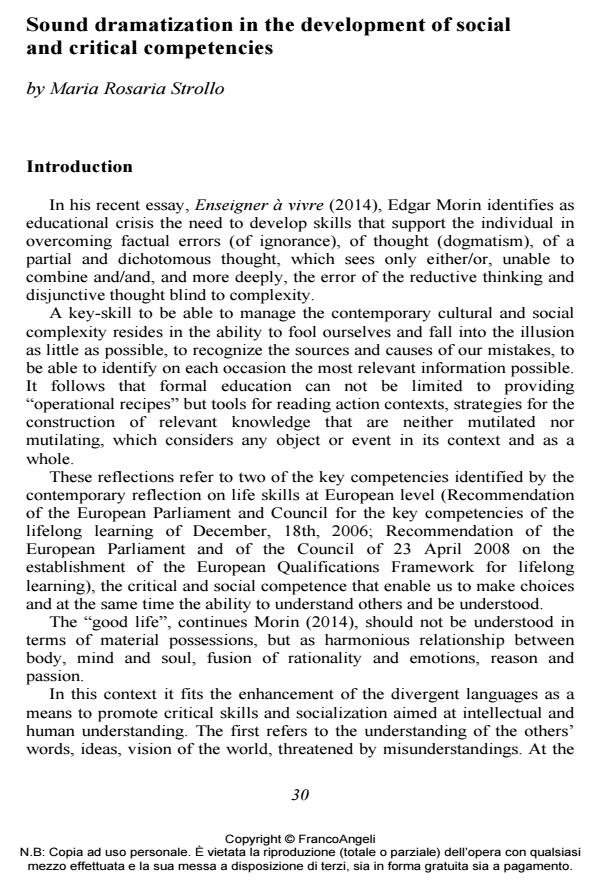Sound dramatization in the development of social and critical competencies
Journal title EDUCATIONAL REFLECTIVE PRACTICES
Author/s Maria Rosaria Strollo
Publishing Year 2016 Issue 2016/1
Language English Pages 15 P. 30-44 File size 175 KB
DOI 10.3280/ERP2016-001004
DOI is like a bar code for intellectual property: to have more infomation
click here
Below, you can see the article first page
If you want to buy this article in PDF format, you can do it, following the instructions to buy download credits

FrancoAngeli is member of Publishers International Linking Association, Inc (PILA), a not-for-profit association which run the CrossRef service enabling links to and from online scholarly content.
Starting from a reflection on the critical and social competencies, defined as key-skills in the current socio-cultural context, the paper analyzes the use of music and theater in training the trainers and presents a case of sound dramatization tested at the Laboratory of Educational Epistemology and Practices of the University of Naples Federico II
Maria Rosaria Strollo, Sound dramatization in the development of social and critical competencies in "EDUCATIONAL REFLECTIVE PRACTICES" 1/2016, pp 30-44, DOI: 10.3280/ERP2016-001004